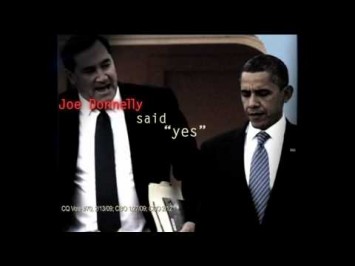American Crossroads: “Where”


Crossroads GPS relies on old distortions in an attempt to scare Florida seniors about the impact of the Affordable Care Act, including the false premise that Sen. Bill Nelson (D) “cast the deciding vote” on the bill. The ACA does not allow for “rationed” care, and its future Medicare savings do not cut seniors’ current benefits. In fact, Nelson’s opponent, Rep. Connie Mack (R), voted to preserve the health care law’s Medicare savings when he supported Rep. Paul Ryan’s budget plan in 2011. Furthermore, the Affordable Care Act includes important benefits for seniors, such as closing the prescription drug “donut” hole and providing free preventive care.
Read more after the jump.










